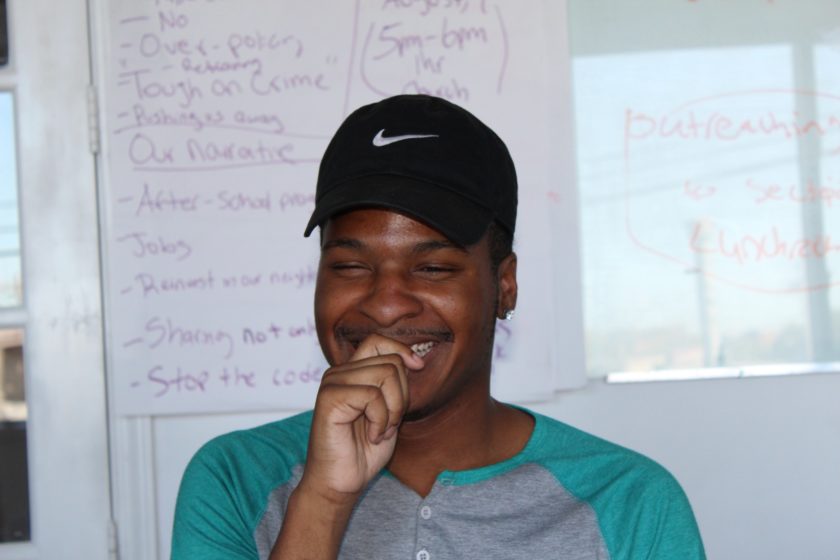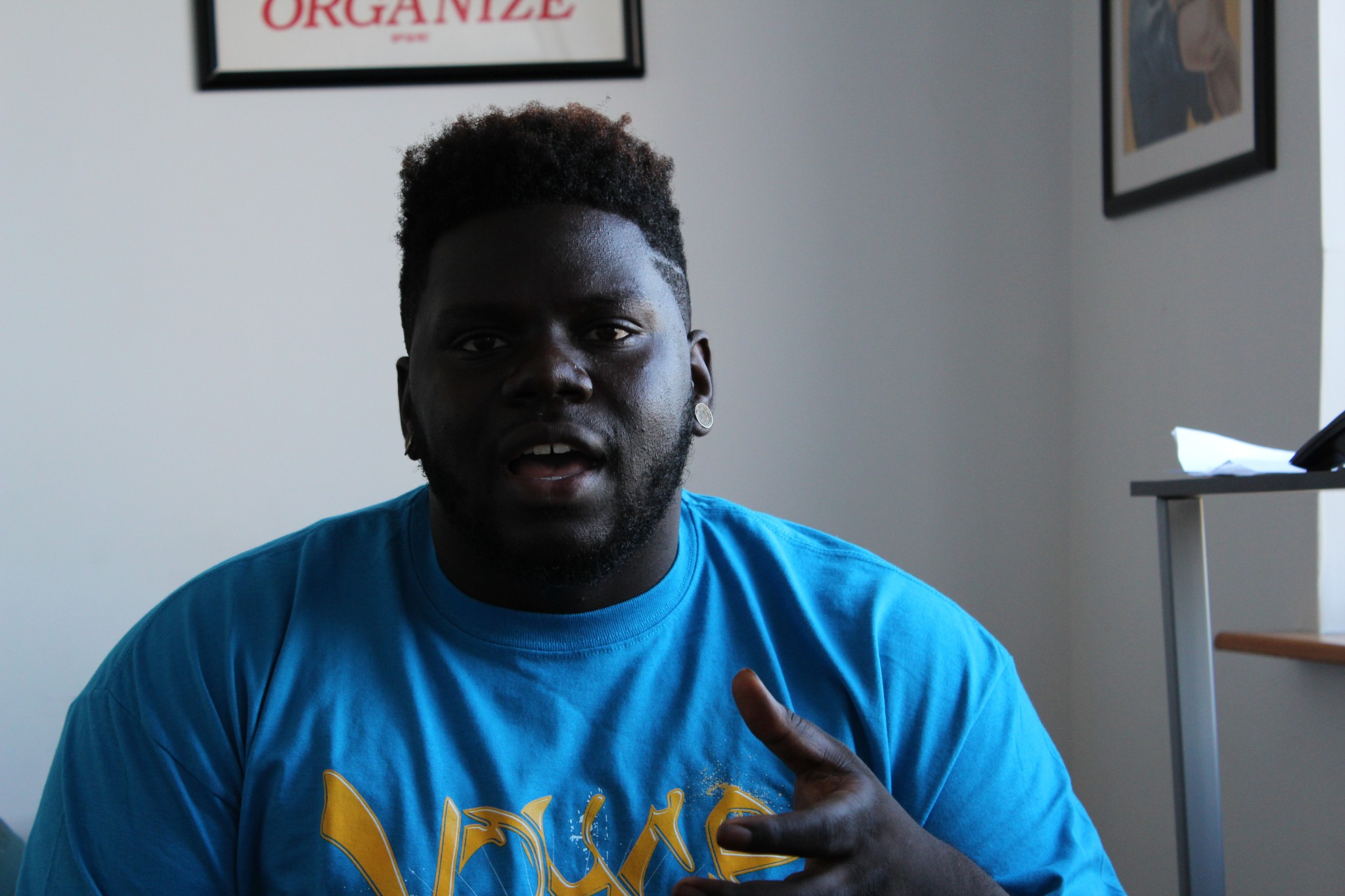One day during his sophomore year at Kelly High School in Chicago’s Brighton Park neighborhood, Carlil Pittman lagged behind in the cafeteria after lunch and didn’t get up to go to class when the bell rang.
He had just found out his girlfriend was pregnant.
He didn’t act out and wasn’t violent toward anyone, but a security guard noticed him lingering at the lunch table and brought him to the school’s main office, where they proceeded to expel him for low grades.
Pittman is now 23 and works as a youth organizer with Voices of Youth in Chicago Education.
Formed in 2007, VOYCE describes itself as “a youth organizing alliance for education and racial justice led by students of color from across the city of Chicago and Illinois.”
VOYCE works with students living on the South and West sides, giving them a platform and the resources to advocate for themselves and their education.
Pittman worked with VOYCE to pass bill SB 100 through the Illinois House of Representatives.
The bill is part of the organization’s “common sense” discipline campaign which pushes for an end to the harsh disciplinary policies employed by CPS.
Before the bill was implemented, students could be suspended up to two weeks for non-violent offenses, such as talking back to teachers or skipping class.
Now because of SB 100, schools can no longer suspend students for more than three days unless they pose a threat to students and faculty. Suspended students must also be given the opportunity to make up their missed work.
SB 100 went into effect Sept. 15, 2016 with the support of state senators and representatives, including Sen. Kimberly Lightford (D-Westchester) and Rep. Will Davis (D-Hazel Crest).
This bill also addresses the larger issue that VOYCE deals with: the school-to-prison-pipeline. This is a theory that states students who expelled or suspended from school are more likely to eventually enter the prison system.
Antonio Magitt, 18, a senior at Roosevelt High School, has been active in VOYCE since his junior year. He now works as an intern at the organization’s Albany Park office with Pittman.
“It stands for exactly what it is,” Magitt said about the organization. “When we get together, it’s led by the students,” and they are encouraged to evolve as activists.
 phjudge | Mosaic Magazine
phjudge | Mosaic MagazineAntonio Magitt, 18, has been involved with VOYCE since he was a junior in high school and now works as a student intern in the organization’s Albany Park office.
Magitt knows firsthand about the harsh exclusionary disciplinary policies CPS used to have in place and has been affected by them throughout his education, having attended five different schools in his life.
He caused trouble and got into fights throughout elementary and middle school, which got him expelled. He eventually enrolled at an alternative school his eighth grade year after physically assaulting a police officer at school, which led to a two-week suspension and ultimately expulsion.
“I don’t want to say… it’s okay for me to do stuff like that, but I was having a really bad day at the time, dealing with a lot of personal things,” he explained.
Magitt was then transferred to the alternative Banner North Academy in the Austin neighborhood, which he felt left him overwhelmingly underprepared for high school. As a result, his first years at Roosevelt High School got off to a rocky start.
Then he had a revelation the summer before his junior year.
“I came to the conclusion to start changing my ways or else I’m gonna end up either in jail or dead. Luckily I did that and this is where I’m at now,” he said with a grin on his face.
“He’s had a few bad encounters,” Pittman said about Magitt. “…Things that could have been avoided if there was the proper person there for him to talk to. He’s a very intelligent black individual.”
Pittman and Magitt were both victims of the harsh discipline policies employed by CPS until the 2012-13 school year.
These policies were not unique to Chicago. Jon Schmidt, clinical assistant professor of education at Loyola University Chicago, explains that it followed the trend of law and order that was popular across the country starting in the ‘90s with the Clinton crime bill.
The idea, Schmidt said, was to “really clamp down on disciplinary behavior and rid it out immediately.”
“It hasn’t really worked out that way,” he added.
CPS has since shifted from exclusionary to restorative disciplinary policies, which include counseling and after-school programs. The district reports expulsions amd suspensions have decreased significantly since these new measures have taken effect.
Out-of-school suspensions have decreased by 67 percent, according to CPS data, while the rate of expulsion has decreased by 74 percent since the policy changes were implemented in 2012.
CPS declined to comment, but did say that their current policy aims to “emphasize restorative justice.”
Although these numbers are encouraging for those at VOYCE, especially Pittman, it does not mitigate the effects the policies had on students like Magitt or himself.
Pittman hopes that the education system his three young sons enter is better than the one that expelled him eight years ago. He vows to continue to fight for better opportunities for all students, both in and outside of school.
“It’s pretty amazing to come from what I came from, to be a young black man on the South Side of Chicago, to actually turn that around and use that as motivation to do this work and make sure it doesn’t happen to other students.”



